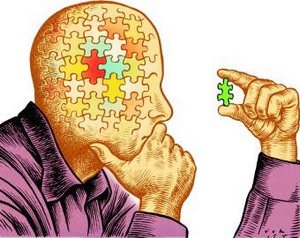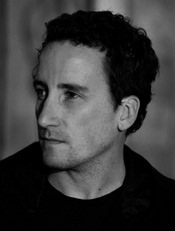Lucid Dreaming and The Critical Mind

Today I'd like to talk about conformity, inspired largely by my recent trip to one of Europe's largest lucid dreaming conventions.
Now, before I descend into the meat of what I have to say, I'd first like to mention that, in many ways, I had a wonderful time, having the opportunity to mingle with some fantastic and thoughtful lucid dreamers.
However, the pleasures of socialising were quickly tainted with an element of sadness, for during the course of the weekend, a consistent theme stood out; the growing schism between rationality and spiritual thinking in our community.
The event seemed inherently anti-science and full of personal beliefs. Of course, this is where the ideas of conformity step in: do we simply accept ideas because they are popular, or because they are believed by those around us?
Approaching Spirituality
Now, perhaps I shouldn't have been all that surprised, the event itself clearly advertised the themes for the weekend, including Shamanic Dreaming, lucid dreaming in Tibetan Buddhism, OBEs and Qigong based lucid dream practices, to name but a few. Clearly, this wasn't going to be a conference focused on science nor, perhaps, one that held rational thought in particularly high regard.
Now, don't get me wrong, I am fascinated with the use of lucid dreaming in other cultures and traditions, and prefer to keep an open mind as to what may be discovered as we explore the uncharted corners of the human psyche. I do, however, believe that such topics should be approached with a fair level of scepticism and with the understanding that they have grown out of cultures and periods in history, very different to our own.
I also feel that, as modern westerners, we must be wary of our tendency to project an air of mystical superiority on belief systems developed in far off eastern cultures. I believe this way of thinking belittles the beauty and complexity of the cultures from which they derive; in a way, it's a form of positive discrimination. At worst, it descends into a kind of pick-‘n'-mix spirituality, that ignores some of the less palatable aspects of such beliefs and cultures, often much to the annoyance of native practitioners. It's also important to note that ‘ancient' does not always equate to ‘true', else we'd still be burning women accused of witchcraft.
Beliefs vs Facts
During the course of the weekend, I was subjected to all manner of unsubstantiated ideas. One speaker particularly stood out, saying such things as, "We can lucid dream with various organs of our body, from spleen to lungs", and then proceeding to encourage the entire audience to chant, "Om" whilst playing on his singing bowl.
Now, this is all well and good, if he'd prefixed his talk with the disclaimer that what he had to share were personal beliefs and private speculation (I certainly have no qualms with using lucid dreaming as a means to pursue spiritual and philosophical interests). Instead, however, he and most other speakers, all shared their beliefs in a very matter of fact manner, rarely, if ever, admitting that what they were truly discussing were their own personal world views. Many, if not all of them, also openly admitted distaste for science.
However, what really shocked me was the audience's lack of critical thinking, absence of probing questions and conformity to group pressure and beliefs. As an aside, I was also pretty shocked at the lack of reality tests being performed by apparent dream enthusiasts over the course of the weekend!
Conformity vs The Individual Journey
As readers of Are You Dreaming? will be aware, my stance on lucid dreaming is of a personal, individual journey, one that each of us walk alone; a critical investigation into our experience of reality. It is a scientific (or at least critically self-aware) exploration of the experience of dreaming as it presents itself; not how we would wish it to present itself. So, it's safe to say my experience at the conference really got me thinking...
For me, belief and wishful thinking have no solid place in the discussion on our exploration of the mind. Yes, we may hold personal beliefs, but I feel it is wrong to use a subject such as lucid dreaming, as a platform to promote personal or religious beliefs about the universe in which we find ourselves. I've never been fond of conformity; I find it empowering to ask difficult questions, as, in my experience, such questioning helps us cut through to the very core and truth of a topic. It also helps us question our own motivations and beliefs.
Lucid dreaming itself requires that we do not conform to the status-quo. In dreams, should we follow the herd, we would never ask, "Am I dreaming?" or, even if we did, were we to rely on the opinions of our dream characters to help us reach a conclusion, we'd almost always remain blissfully unaware of our predicament; utterly without lucidity. To become lucid in our dreams, we must first break free, to act as independent, thoughtful individuals. We must ask the question, "Am I dreaming?" and draw our own conclusions based upon the evidence available, not simply the opinions of others.
Becoming Lucid About Reality
There is also no reason why we should abandon this behaviour in our waking lives. To do so, we risk becoming the waking equivalent of a non-lucid dreamer, one who blindly accepts the world and ideas on belief and hearsay rather than facts and reality. Questioning ideas and beliefs is healthy; indeed, it is the only real path towards truth.
So as lucid dreamers, I urge you to ask difficult questions, if you are faced with those who promote superstitious or irrational thinking, challenge them. This isn't to say you should become arrogant and contemptuous (we're all explorers and constantly learning), instead, direct your critical thinking as much towards your own ideas as to that of others.
Always be ready to re-evaluate your own beliefs and treat your own ideas with the same critical mind. Also, be very aware that those ideas that seem most appealing to us (and those we hold dear), are often the most insidious, if we want something to be true, or are fearful that it is not, we will often suspend our critical thinking in order to maintain our comfortable illusion.
We must remember that the word ‘lucid' is synonymous with awareness, clarity, knowledge and truth. To be truly lucid in both our waking and dreaming lives, we must be willing to shun conformity when it stands in the way of accessing the truth.
We must also be willing to accept that we may never have all the answers to important and difficult questions, such as, "What happens after we die?" or, "Why am I here?". This is okay; there is no shame in admitting that we simply do not know; it's certainly better than inventing comfortable but fallacious answers. If we can humbly accept our small place in the universe and the limitations of human and personal knowledge, we can, I feel, take the first steps towards discovering what truths are genuinely available to us.
Final Thoughts
I would like to thank the organisers of the event, as they put a great deal of effort into making it a comfortable, pleasant and polished weekend. It also really got me thinking. I can't, however, agree with their choice of content.
Lucid dreaming is bigger and more beautiful than unsubstantiated philosophies and eastern mysticism. Our minds are the truest definition of the word ‘wonderful'; genuine marvels of nature. This universe, even without the stories and myths of mysticism, is still unfathomably vast and awe inspiring. As much as I'd like to nod along and pretend to agree, I can't: lucid dreaming is better than this.
Yes, it's difficult to stand up and stand out, but if I didn't, I'd be inauthentic to something I truly love. So, I ask only a little: for those of you, who intend to put on future events about lucid dreaming, please consider focusing on the marvels of the mind. Those of you, who believe in mysticism, be humble and honest that these are your beliefs, not verifiable facts. I sincerely hope I'm not alone in this approach and that others will join me in exploring the true wonders of lucid dreaming and the human mind.
So, be lucid, be difficult and challenge your world!
Additional Material
If you're interested in exploring the mechanisms and concepts of conformity, I highly recommend this video by TheraminTrees.
About The Guest Author

Daniel Love is a British lucid dreaming expert, whose goal is to share lucid dreaming in an honest and thoughtful manner. He aims to dispel some of the myths and misunderstandings surrounding the subject, with the hope that it will help bring the wonders and benefits of lucid dreaming to a wider audience.
To hear more, see my interview with Daniel Love and check out his book Are You Dreaming? You can read my full review here.

















